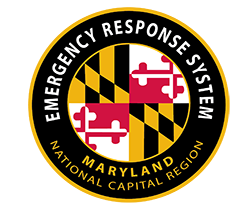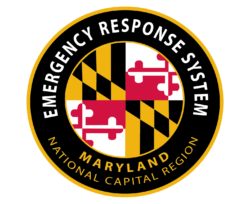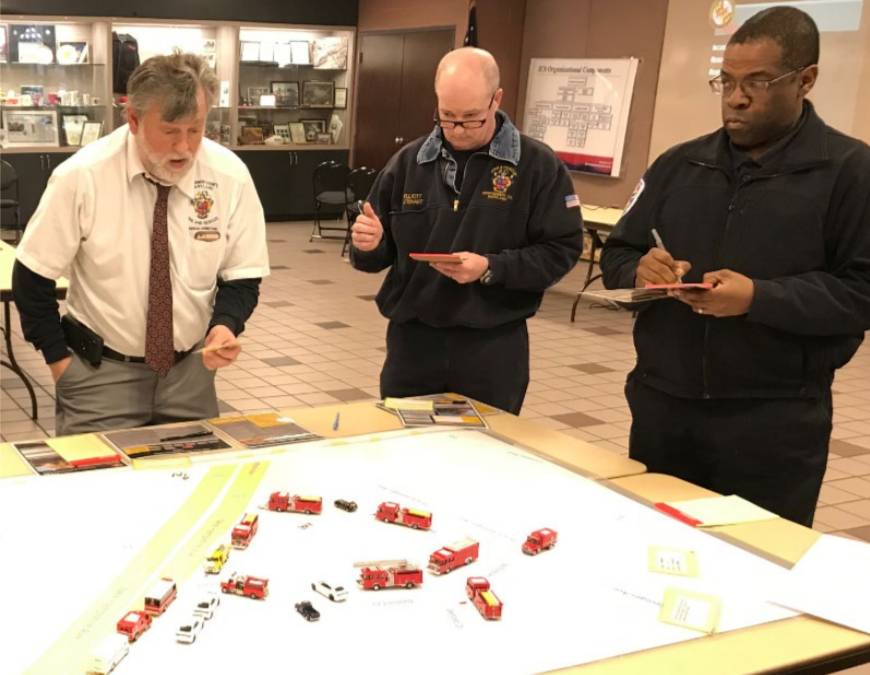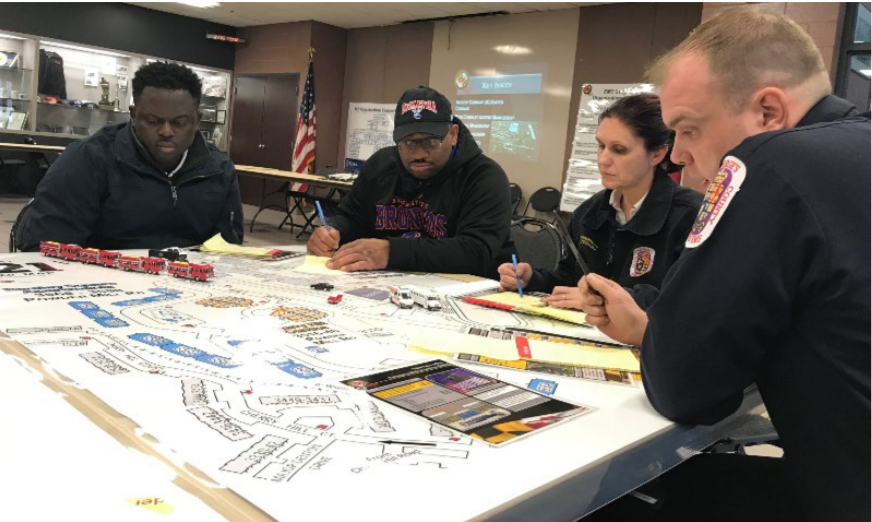
The Maryland-National Capital Region Emergency Response System (MDERS), working with the Prince George’s County Fire/EMS Department (PGFD) and Montgomery County Fire and Rescue Service (MCFRS), delivered six Tabletop in a Box training sessions for the Emergency Medical Services Supervisors. This regional training was in response to a joint request from both departments. The goal was to assess the EMS supervisor’s ability to use the incident command system and develop a virtual action plan through simulation and repetition. All the sessions were delivered in February and March 2019.
MDERS staff worked with subject matter experts from both fire departments to develop a series of tabletop drills focused on the EMS Supervisor and manager. Incidents were identified from the most common type of events that occur in both counties. These included a single-family house fire, a motor vehicle collision, and a garden apartment fire. The exercises grew in complexity to include mass casualty incidents and an active violence incident.
All the scenarios contain multiple patients which require the coordination of fire and EMS resources. A total of four incident types were created, each one more complex than the previous.
Each scenario was designed using a crawl, walk, run approach to introduce the players to this type of exercise. This progressive method allows the participants to get familiar with the sequence and build confidence in a no fault learning environment. All materials for the exercises were based on real addresses, maps, vehicles, and tactical worksheets that are used by the departments. Incidents were designed to replicate an incident occurring on the Montgomery and Prince George’s County line, requiring multiple departments to work together. A mutual aid incident provided realistic play for the participants from both counties.
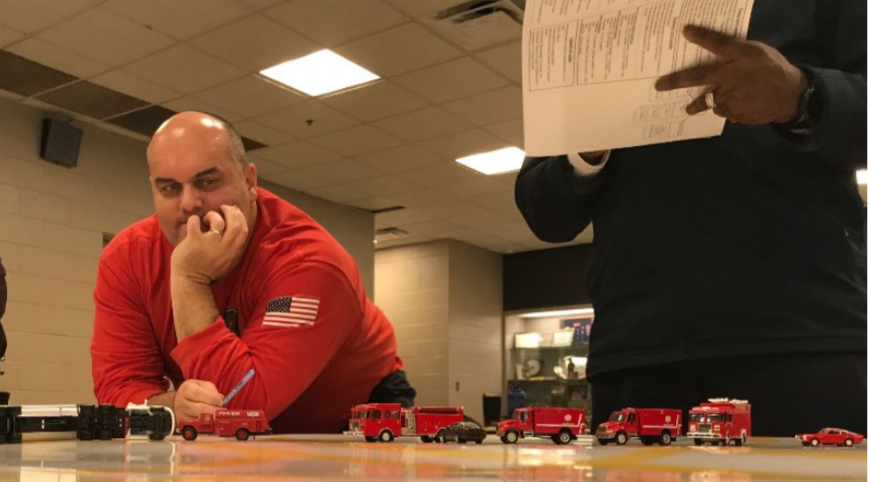
MDERS staff scripted each scenario to include a time sequence for the events, a set of activities from each unit crew, and expected actions from the EMS Supervisor. A checklist of tasks and activities accompanied the event. This provided the leader with an easy way to check progress and provide feedback. Both departments participated in two exercises a week totaling six exercises. Exercises were held at alternating locations.
Feedback from the exercises was very positive, prompting leaders to request a second round of development and delivery planned for the fall and winter. MDERS will continue to build and support the program, facilitating optimal command and control of a variety of incidents, especially those requiring a complex medical response by multiple departments.
If you have any questions, please contact Planning & Organization Program Manager Michel McAdams at Michael.mcadams@maryland.gov
